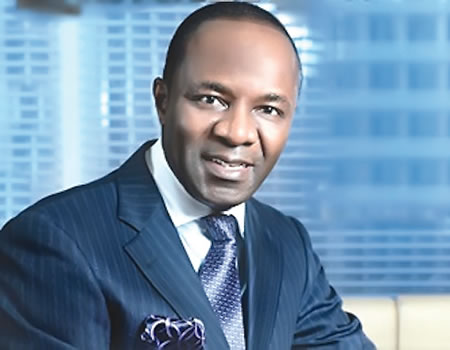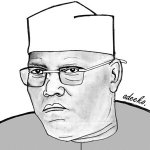Genesis of fuel crisis in Nigeria
IN 1965, the first refinery built by Shell D’archy was commissioned in Port Harcourt. It has the capacity to process 60,000 barrels per day (bpd) of crude oil for a population of 50.15 million Nigerians. It is also noteworthy to state that the downstream sector was deregulated at that time. In a deregulated market, expectedly, private companies would drive the economy if the government provides enabling environment as it was in the 1960s. At that time, crude oil was bought, taken to the refinery for processing and sold to Nigerians at prevailing market prices. We should also note that prices vary from one region to another at that time.
For instance, it is on record that pump prices in Lagos were different from prices in Kano, Maiduguri and so on. There was no fuel scarcity because with 60,000 bpd for 50.15 million people, adequate supply was guaranteed.
However, the influence of communist and socialist ideologies in the 1970s affected the policy of the Federal Government at that time not forgetting the impact of the Nigerian civil war between 1967-1970.
Welfarism ideology took over from efficiency and productivity and the government began to determine the rewards for factors of production.
That was when government suddenly realised that some Nigerians in certain region of the country were paying so much more for the commodity that belongs to all citizens when compared with their counterparts from other regions without due recourse to the proximity of the refinery to each region.
During this period, the government introduced ‘COLA’ which means Cost of Living Allowance, negotiation to take over the refinery began, and in 1973, government started uniform pricing through the enactment of Petroleum Equalisation Fund (PEF) Act. Before then, there was disparity in pump price based on locations.
What PEF does is to provide for the cost of taking petrol from the refinery or depots to other regions and ensure uniform pricing across the country.
Meanwhile, marketers began to define how best to maximise their gains by allegedly sabotaging government’s efforts to ensure adequate availability of products.
In 1978, the Federal Government commissioned Nigeria’s second refinery, Warri refinery with capacity to process 125,000 bpd. Making a combined production of 185,000 bpd for a population of 69.29 million people.
In 1980, it commissioned the Kaduna refinery with installed capacity to process 110,000 bpd crude. Making a combined 295,000 bpd for a population of 73.6 million people.
In 1983, Federal Government completed the take over process of old Port Harcourt refinery and commissioned a new Port Harcourt refinery in 1989 with installed capacity of 150,000 bpd crude production. By this time, Nigeria’s four refineries were processing a combined 445,000 bpd of crude for a population of 92.84 million people.
By implication, it means Nigerian’s crude per capita (that is a Nigerian share of processed crude) was 0.12 per cent in 1965; it increased to 0.47 per cent in 1989 and assuming the four refineries are working optimally as at 2017 with a population of 190,886,311, it means this has reduced to 0.23 per cent crude per capita.
However, considering that the refineries are working less than 30 per cent installed capacity, it means crude per capita is near zero per cent.
Besides, no additional refinery had been built since 1989. Out of 22 government owned depots, almost none is working. Marketers have gradually become indispensable because some of them have invested in tank farms and depots which the government lacks the political will to provide for its teeming popularion.
As population increases, energy demand increases. Government was unable to meet the growing demand through refineries’ output. It engaged some marketers to help bridge the gap in a regukated market. The marketers go to the banks, secure a loan and import on behalf of government with an agreement that they should not sell above certain price. The government promised to reimburse whatever the difference between the cost and the recommended selling prices. That was the emergence of what is called subsidy. With introduction of subsidy, fuel crises in Nigeria has continued unabated.
The way forward
Experts have continued to urge the federal government to liberalise the premium motor spirit (PMS) otherwise called petrol.
The Head of Energy Research, Ecobank, Dolapo Oni, recently stated that deregulation of the downstream sector is the way out.
According to him, “The issues at the front bunner now is that either the pump price be increased or the foreign exchange used by marketers for importation should be subsidized. That’s the marketers will get preferential foreign exchange rates so that they can get to sell around N145 per litre.
“This is like swapping a consumption subsidy for forex subsidy. The government through the Central Bank of Nigeria (CBN) is paying the subsidy. What this practically means is that if you reduce the foreign exchange rates from market rate of say N360 to a dollar to let’s say N260-N280, you will definitely get a price that will make marketers not to sell above N145 per litre.
“Kachikwu also said if we can get N240 to a dollar for marketers, marketers will be very comfortable to sell at N145. But of course on the other side, it means since petrol alone takes 45 per cent of our imports, it means huge percentage of our exchange rate will not be exchanged competitively.”
He urged President Muhammadu Buhari, who is also the Minister of Petroleum Resources to allow the market to regulate its prices.
“Deregulate the petrol market and allow the market to regulate prices. If you look at the market, you will see that it is not economical and realistic that we will be buying at N171 and sell at N145 per litre. Especially when it was realised that we were selling at N145 when crude prices were well below $60 per barrel. Oil price has risen above $60 per barrel and we haven’t adjusted our fuel prices. Our exchange rate hasn’t been adjusted either.
“Something has to give way at some point. And the ultimate solution would be full deregulation of the market. Allow marketers to sell at competitive prices and I can assure you that competition in the market would ensure the prices will eventually come down.
“Population is growing, demand is growing and we still have issues with inadequate supply. Remember that we also use petrol to power our generators, corporate firms also require fuel for moving around and all other demanding sectors that were not captured.
“We are in an election year, and there are lots of moving around. All these increase demand for fuel and there is need to address the supply challenges. If the sector is deregulated, we won’t be having equal pricing across the country. There will be some parts of Nigeria where pms will be selling at N160-N280 per litre,” he said.
On his part, the Executive Secretary, Major Oil Marketers Association of Nigeria (MOMAN), Femi Olawore, stated that lack of laws that will govern the downstream sector remians a challenge.
According to him, “with my over 36 years in the downstream sector, Nigeria has no structure or legal framework that will govern the sector. What we have in Nigeria is ‘Directives’ by successive governments. That’s why such directives change as new government comes to power. Presently, we do not have a deregulated pump price of petrol. What we have is partial deregulation where the government fixes the cap of prices.”
Conclusion
The debate on whether Nigerians are ready to embrace deregulated downstream sector has been on again. Many opine that with high rate of inflation accompanied by lack of increment in minimum wage in Nigeria, it may be difficult to introduce such policy now.
Others also argue that this is an election year whereby incumbent administration will be strategising on how to win the next general elections and may lack the political will to introduce such reform.
Truly, increasing the pump price of petrol above N145 may be challenging for political reason, but realistically that’s already happening. Presently, in some parts of the country, some people are paying between N180-N280 per litre.
Pms is about 70 per cent of our petroleum products demand in the country. The country lacks the much needed infrastructure to ensure smooth distribution around the country.
These are the issues that deregulation will address. It will drive investment to the midstream sector, modular refineries will spring up in most regions and the entire supply chains will improve considerably.
Dangote refineries, when completed will also play a key role including other private investors like Petrolex Refinery that will soon commence construction.







